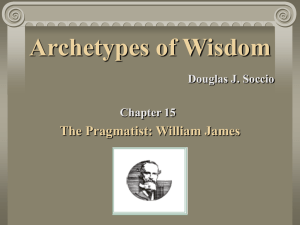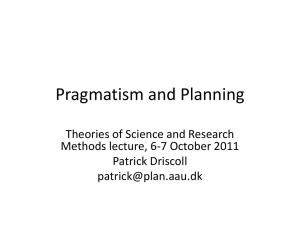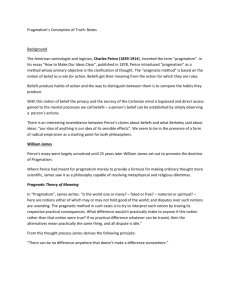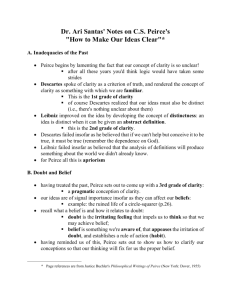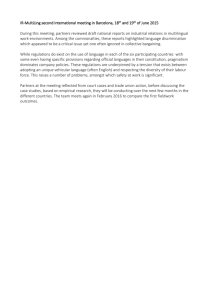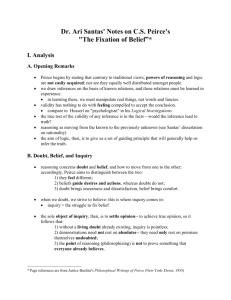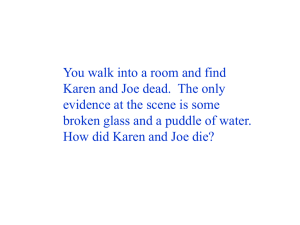Essence of Pragmatism - Valdosta State University
advertisement
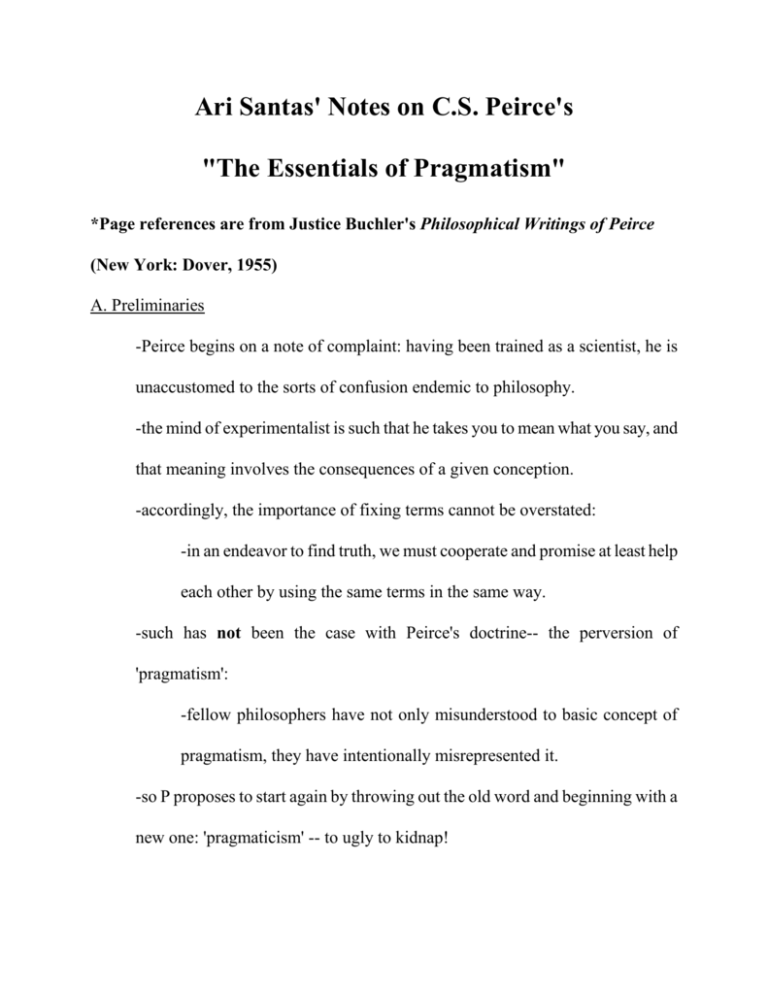
Ari Santas' Notes on C.S. Peirce's "The Essentials of Pragmatism" *Page references are from Justice Buchler's Philosophical Writings of Peirce (New York: Dover, 1955) A. Preliminaries -Peirce begins on a note of complaint: having been trained as a scientist, he is unaccustomed to the sorts of confusion endemic to philosophy. -the mind of experimentalist is such that he takes you to mean what you say, and that meaning involves the consequences of a given conception. -accordingly, the importance of fixing terms cannot be overstated: -in an endeavor to find truth, we must cooperate and promise at least help each other by using the same terms in the same way. -such has not been the case with Peirce's doctrine-- the perversion of 'pragmatism': -fellow philosophers have not only misunderstood to basic concept of pragmatism, they have intentionally misrepresented it. -so P proposes to start again by throwing out the old word and beginning with a new one: 'pragmaticism' -- to ugly to kidnap! B. Doubt, Belief, and Truth -the goal of the essay is to explain once and for all what pragmatism is about. -He begins with a general discussion of truth, belief and doubt. -first of all, the starting point of inquiry (towards truth) can only be where you are at this point, not original doubt (e.g., Cartesian), not original impressions of sense (e.g., Lockean). -truth must always be considered in the context of doubt and belief: -belief is a habit of mind which impels us to act in certain ways; -doubt is the privation of such a habit, and therefore an inhibiter of action; -truth is not a metaphysical entity, but where experience is gradually leading our belief, the quelling of doubt. -what you believe you always believe as true: inquiry can only begin with genuine doubt. -what you cannot help believing cannot, therefore be called wrong belief, unless by "cannot" you merely mean "it's inconvenient." C. Basic Features and Advantages -having made those comments, Peirce sets out to state his version of pragmatism (pragmaticism). -the essence of pragmatism: "Consider what effects that might conceivably have practical bearing you conceive the objects of your conception to have. Then your conception of those effects is the whole of your concept of the object." (p.259) -the theory is proved, says Peirce, by its results: 1) it wipes away metaphysical quibbles and sets forth a set of questions capable of determinate scientific investigation; 2) it conforms to our common sense understanding of things; 3) it offers an alternative to traditional metaphysics, extracting whatever was worthwhile in the old doctrines. -through an imaginary dialogue, P further elaborates this doctrine... D. Experiment as Ongoing Process -some one may ask how experiments can tell us anything about general truths, since they only report an occurrence a particular point in time. -Peirce responds: -by experiment, a pragmatist does not mean an isolated event, but a continuous process; -the rational meaning of a term is not any given particular effect of the object in question, but all conceivable effects; -an experimental phenomenon is a series of recurring event under certain circumstances; -an experimental hypothesis is a claim that in the future, something will happen to anyone who fulfills certain conditions. -hence, a pragmatic conception of meaning is one that acknowledges the general nature of meaning and plants in not in the past, but in the future. E. Doing and Thinking -one may ask, if practice and action are so important to pragmatism, why not make meaning consist in Doing? -Peirce responds: -pragmatism is not simply the doctrine of doing! -it is the doctrine that all cognition has a purpose, so that thinking is a form of doing that enables us to resume thwarted activity; -meaning is general, psychical, yet generals can be real, provided that they have practical bearing on the course of events; -for instance, the thought of stuffy can cause the window to open (through me). -the point of pragmatism is not the promotion of doing, but that of intelligent doing-- the control of future reality through thought. -enter 3rdness: action itself could never constitute law; particular events could never account for regularities: -there must be some principle of continuity inherent in the nature of things-- Thirdness. F. Pragmatic Verification -the goal of an explanatory hypothesis for Peirce is this: -to lead to the avoidance of all surprise (doubt) and the establishment of a habit that will yield expectations that will not be disappointed (belief). -for them to work out, however, they must be tested, verified; -but by what criteria do we verify a hypothesis? -Comte required that a hypothesis be tested in such a way that its predictions be subject to direct observation. -Peirce say that this is too strong: -in that case, very little would ever get verified (e.g., Schliemann); -keeping in mind that experiment is an ongoing process, a hypothesis is verified in stages as more and more phenomena are observed as predicted.
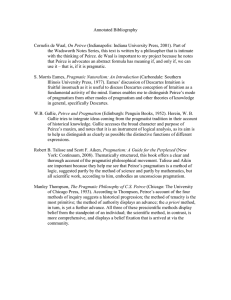
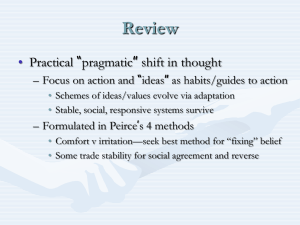
![Peirce What Pragmatism Is [DOC]](http://s3.studylib.net/store/data/006691816_1-3ea24875f239a19d00f914dc7c6f25fb-300x300.png)
